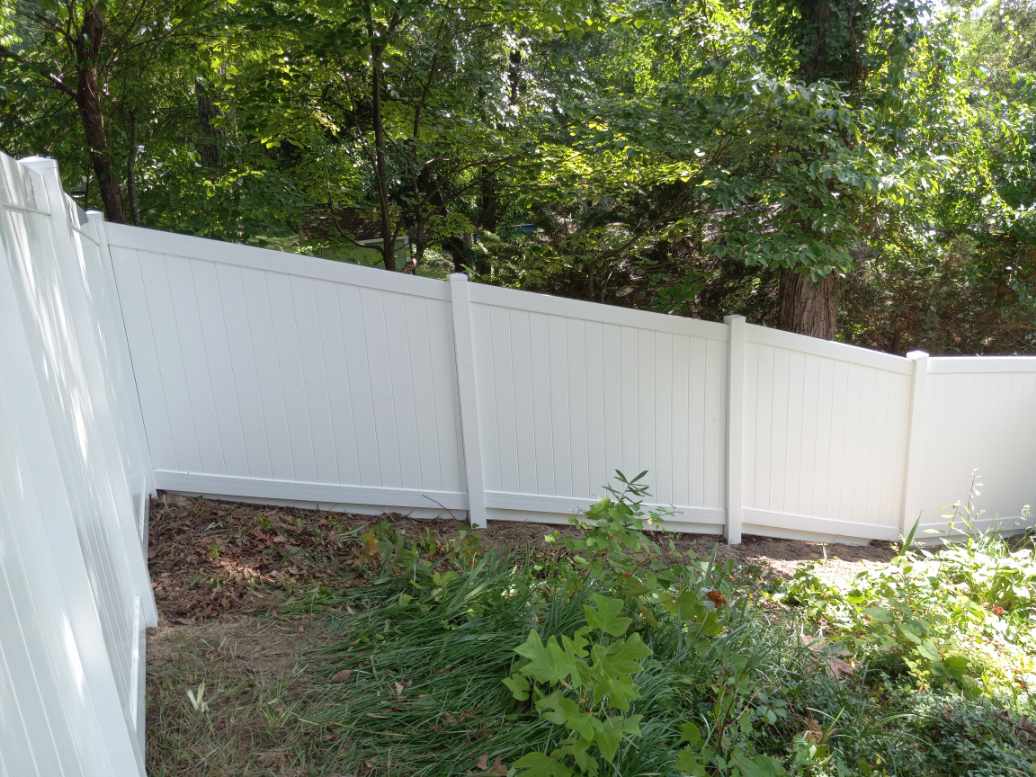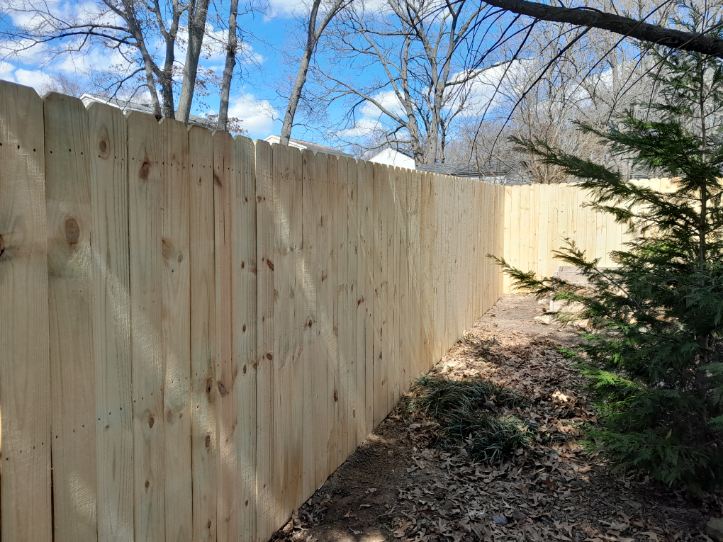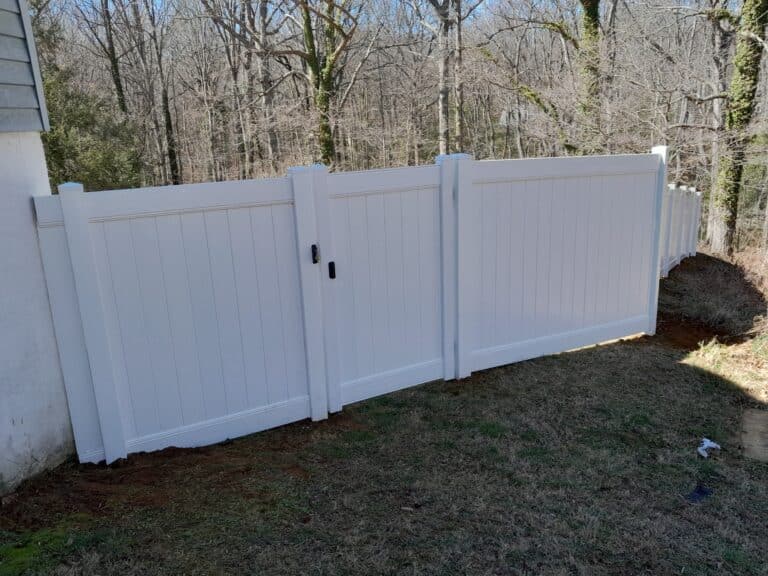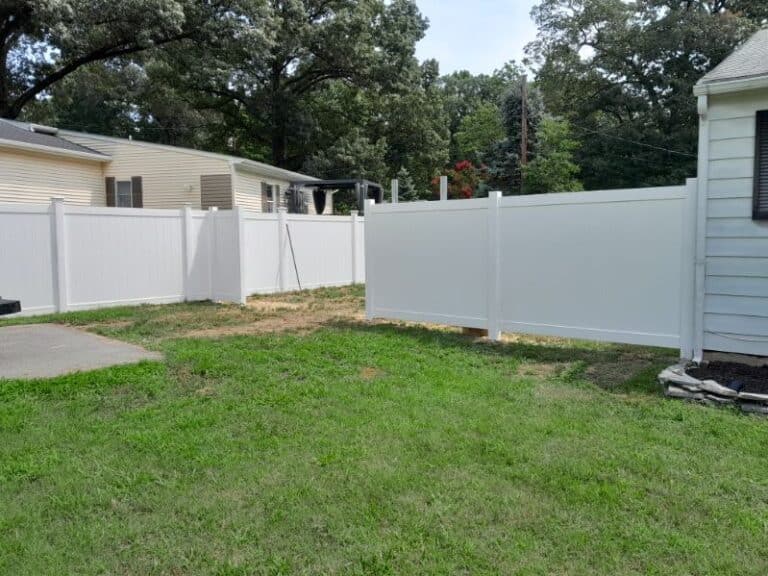Choosing the right fence begins with understanding the local weather conditions. Ferndale has hot, muggy summers and cold winters, common in Maryland’s Mid-Atlantic. Freeze–thaw cycles can stress materials when water in the soil freezes and expands. According to national climate records and county summaries, nearby weather stations show winter lows in the upper 20s and summer highs in the upper 80s with humid conditions. That’s why Ferndale homeowners need durable, weather-resistant fence materials, especially during construction or renovation.
How Ferndale’s Weather Affects Outdoor Structures
- Ferndale is in northern Anne Arundel County. State climate summaries indicate Maryland experiences humid summers and cold winters. Meanwhile, county-level reports also show regular rain throughout the year. This means that controlling moisture helps fences last longer and protects the surrounding landscape.
- Freeze–thaw is a special risk. When the ground freezes, water around posts can expand and push them out of line (frost heave). Planning for temperature swings and wet soils is smart in the Mid‑Atlantic. Salty air from nearby coastal areas can also speed up rust on unprotected metal, so protective coatings and corrosion-resistant materials are a smart part of fence services.
Best Fence Material Options for Anne Arundel Conditions
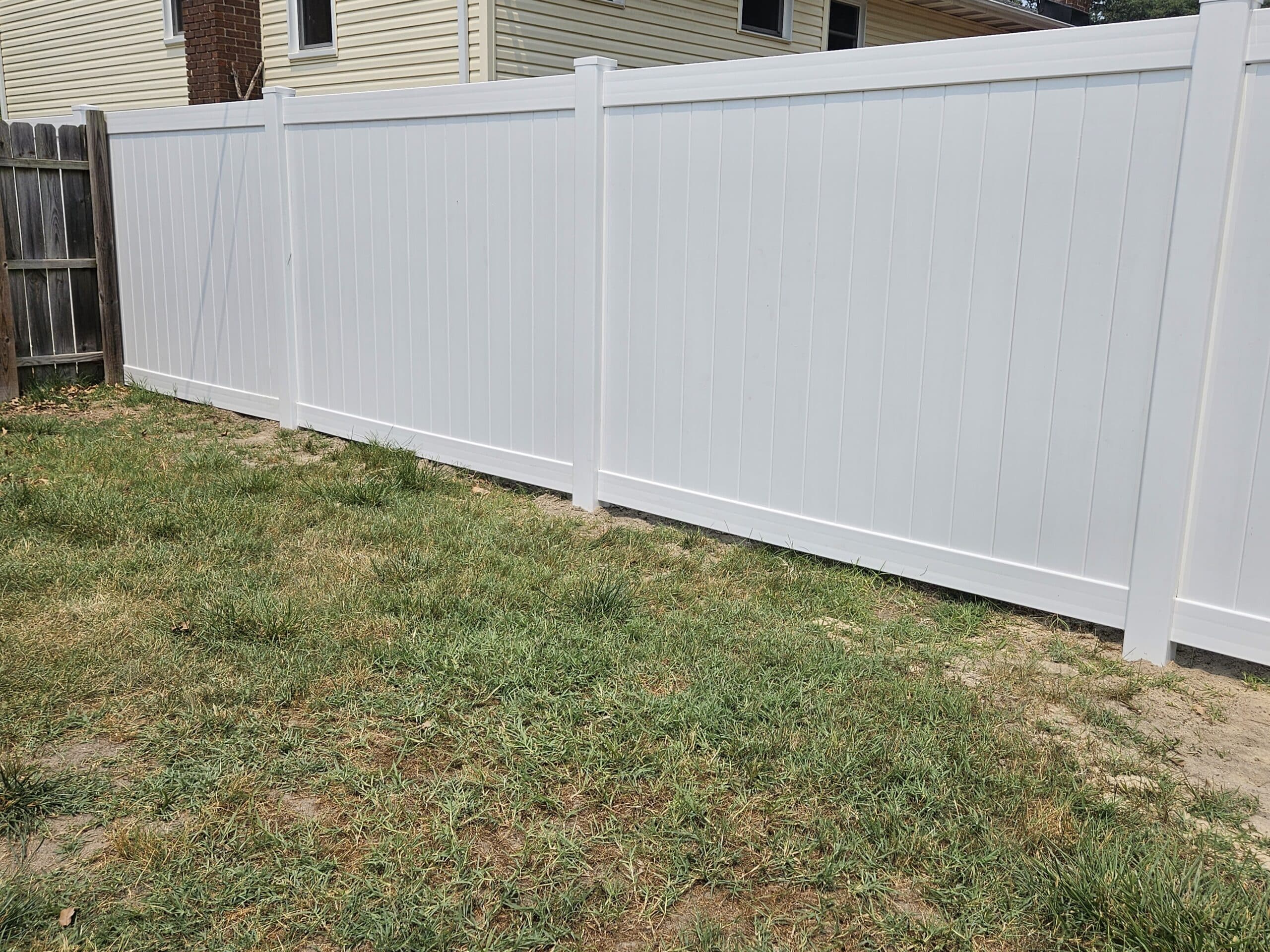
Wood Fencing Performance
- Wood looks natural and costs less at first, but it can soak up moisture, which may cause swelling, warping, and decay. Federal moisture-control guidance explains how keeping materials dry and well‑ventilated helps prevent mold.
- Sealing every 2–3 years is a standard best practice for Ferndale fences; however, the timing depends on the product and its level of exposure. A reputable fence company can help establish a schedule that suits the site.
- Pressure-treated lumber helps resist rot and insects. Pine needs sealing more often than cedar or redwood. It’s best to follow the manufacturer’s instructions during any renovation or upkeep.
Vinyl Fencing Advantages
- Vinyl does not absorb water like wood, so it handles humidity well. For performance, look for products that meet recognized vinyl standards (for example, ASTM F964), which cover impact and weathering.
- Cold-weather flexibility depends on the formula and whether the product is designed for those conditions, which can affect customer satisfaction.
Aluminum and Steel Options
- Wrought iron and aluminum can last a long time when protected. Aluminium resists corrosion and will not rust. Steel is strong but needs protective coatings in humid or salty air.
- Guidance for corrosive areas recommends galvanized or powder‑coated finishes and matching fasteners. Adding the right gate or swing gate helps with safe access, and trusted fence contractors can coordinate the details.
- Both metal styles allow airflow, which helps nearby plantings dry after rain. In salty air, galvanized or powder‑coated systems and matching fasteners are smart choices. Fence experts familiar with the Ferndale environment can suggest fencing materials that fit each site.

Composite Material Benefits
- Composite fencing blends wood fibers and plastics to look like wood but handles moisture better. It usually needs little upkeep and resists insects and mold.
- Since there isn’t one main composite fence performance standard, treat freeze–thaw durability and low maintenance as best practices supported by product data and good installation. A qualified fence company can explain details during the project planning phase.
Why Professional Installation Matters in Our Climate
- Good installation and premium materials help any Ferndale fence last. Posts should be set below the local frost line to reduce frost heave. Depth can change by site and jurisdiction, so follow local guidance rather than guessing a number.
- Clay soils around Orchard Rd and North County High School need good drainage to prevent water from accumulating around posts. Along Rosedale Ave, deeper footings and gravel backfill help when heavy summer storms soak the soil, and concrete footers are commonly used for long‑term stability.
- Local pros understand county permits and specs. Anne Arundel County publishes official fencing specifications—such as Section 02710, which contractors often reference for construction standards. Homeowners, however, should check directly with Anne Arundel County Inspections & Permits for details on permits, setbacks, and height limits. Avoid Ferndale, MD setback and height mistakes with fences by confirming local rules before digging.
- Proper spacing and drainage help a fence stand up to the weather. After big community days—like the Ferndale Day parade and festival—a quick check can catch loose hardware or leaning posts. Reliable customer service also makes it easier to schedule these checks.
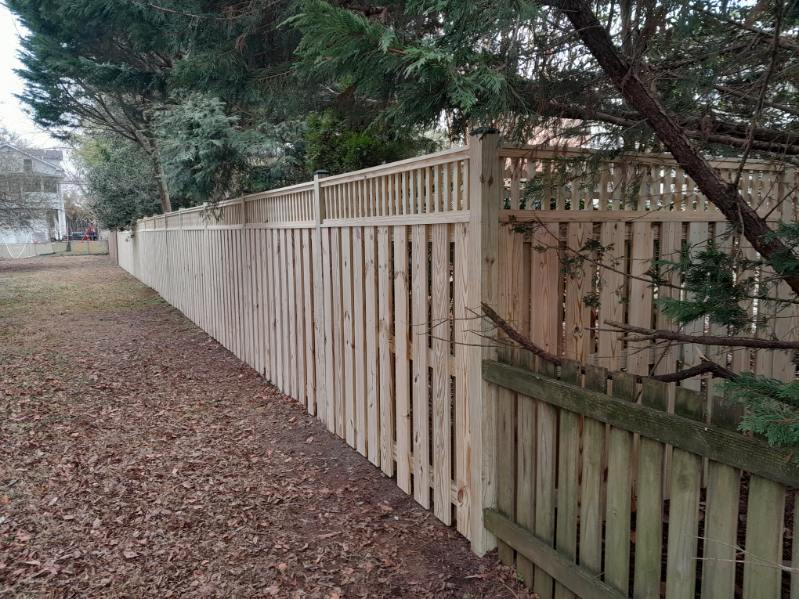
Maintenance Strategies for Local Conditions
- Wood fences: Do yearly checks for rot or insects. Keep wood dry and let air flow around it. Many homeowners add a small chain link fence in high‑use areas to handle wear.
- Vinyl fences: Wash to prevent mildew and check connections. If the product is designed to meet recognized performance criteria, follow the maker’s care guide.
- Metal fences: Look for rust and refresh coatings as needed. Use corrosion‑resistant fasteners and have fence contractors check hinges and latches during routine visits.
- All materials: Trim plants away from fences to improve air flow and drying. Try bundling seasonal tasks into one project to save time.
Premium Fence Materials for Ferndale Properties
- Materials that handle humidity and temperature swings do best. Picking products that follow recognized standards (like ASTM F964 for vinyl) or corrosion guidance for metals leads to better long‑term results and stronger homeowner rating outcomes.
- For a natural look, choose pressure‑treated cedar with a clear care plan. For security, use powder‑coated aluminum or treated steel with the right coatings and fasteners. For utility areas, chain link fences are practical, and a knowledgeable provider can suggest fencing solutions that fit the site and budget.
Ready to Protect Your Property with Climate‑Appropriate Fencing?
Choosing the right fence for your Ferndale home means knowing the weather, moisture, and county rules. All Around Fence and Deck offers a free estimate to plan your project.
For permits and specs, check with Anne Arundel County Inspections & Permits and review county specifications, such as Section 02710. Coordinating timelines with fence services keeps work on track.
Frequently Asked Questions
What fence material lasts longest in humidity and freeze–thaw cycles?
- Vinyl and composite can last a long time when chosen and installed to recognized standards and manufacturer's instructions; lifespan depends on exposure and care. A local fence company can give site‑specific advice.
Are vinyl fences likely to crack during winter cold snaps?
- Cold performance depends on the formula and whether the product meets standards like ASTM F964. Check fence quality and installation guides specific to Ferndale for impact and weathering details.
How does coastal air affect aluminum and steel fencing?
- Salty, humid air can speed up corrosion on unprotected metals. Galvanized or powder‑coated systems and corrosion‑resistant fasteners are smart choices in those conditions.
How deep should Ferndale fence posts be set to prevent frost heave?
- Set posts below the local frost line per county guidance. Because depth varies by site and jurisdiction, confirm locally and involve fence contractors early.
Do county permits apply to new fence installations?
- Most new or replacement fences must follow county rules. Confirm permit and setback details with Anne Arundel County Inspections & Permits and review official specifications, such as Section 02710, before starting.

